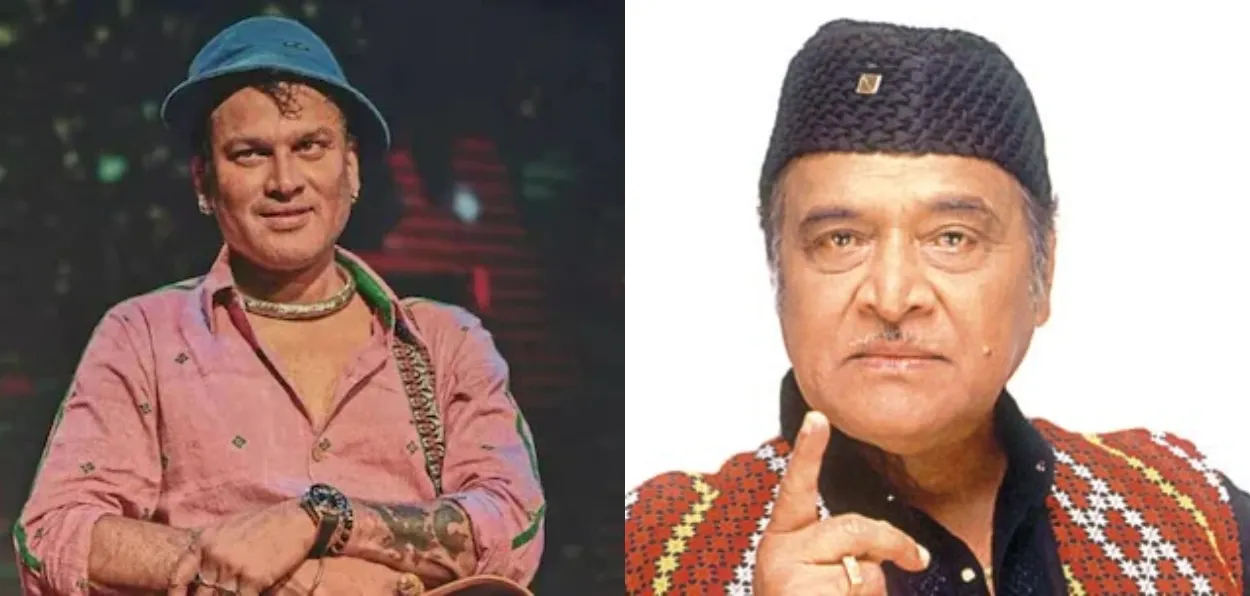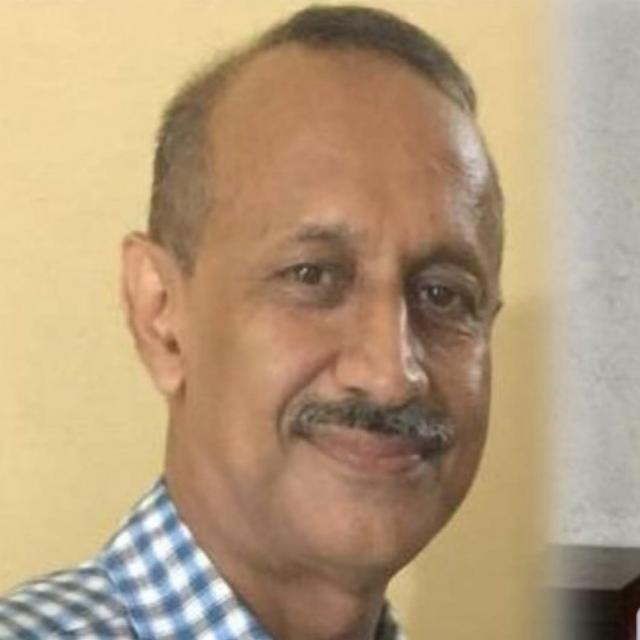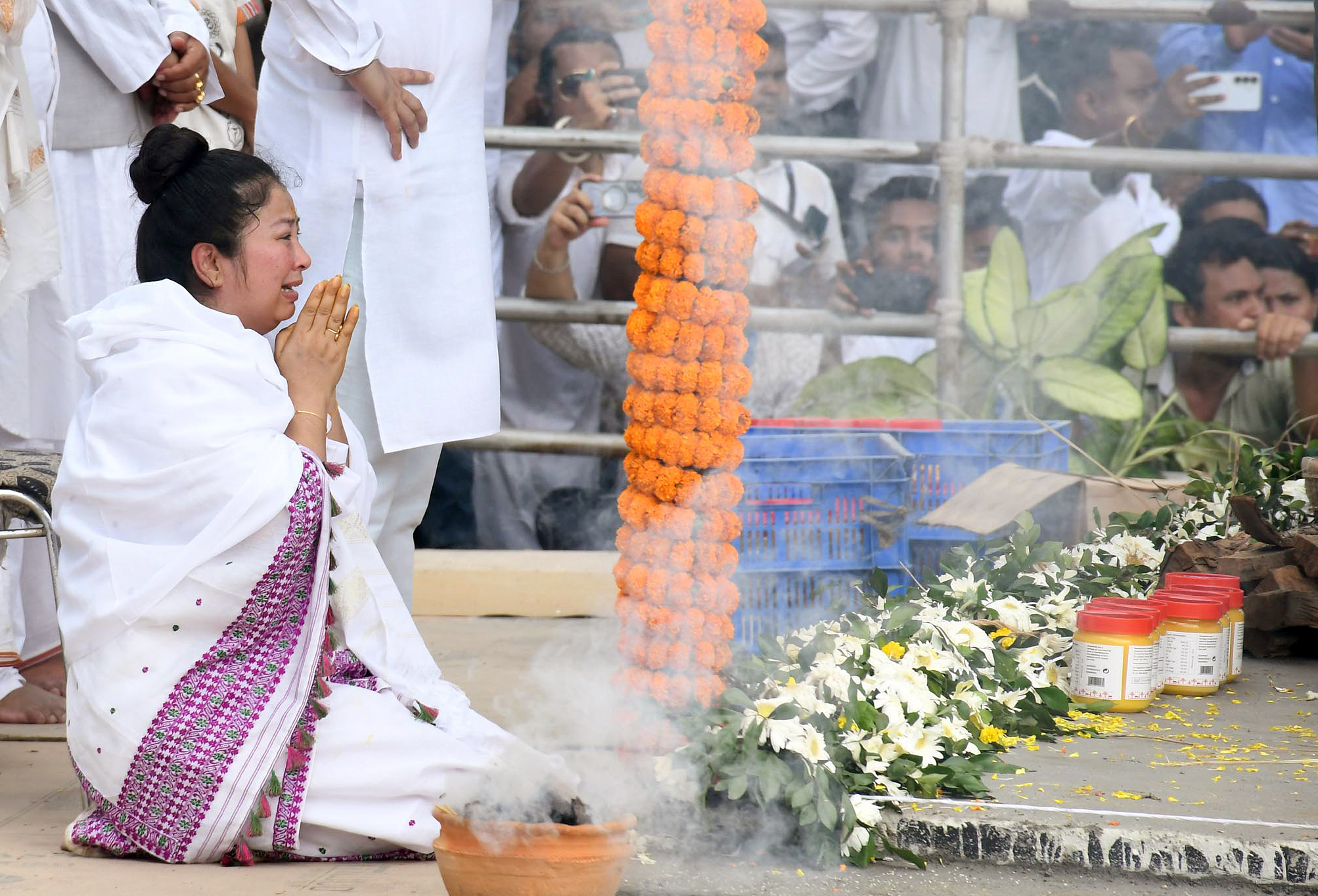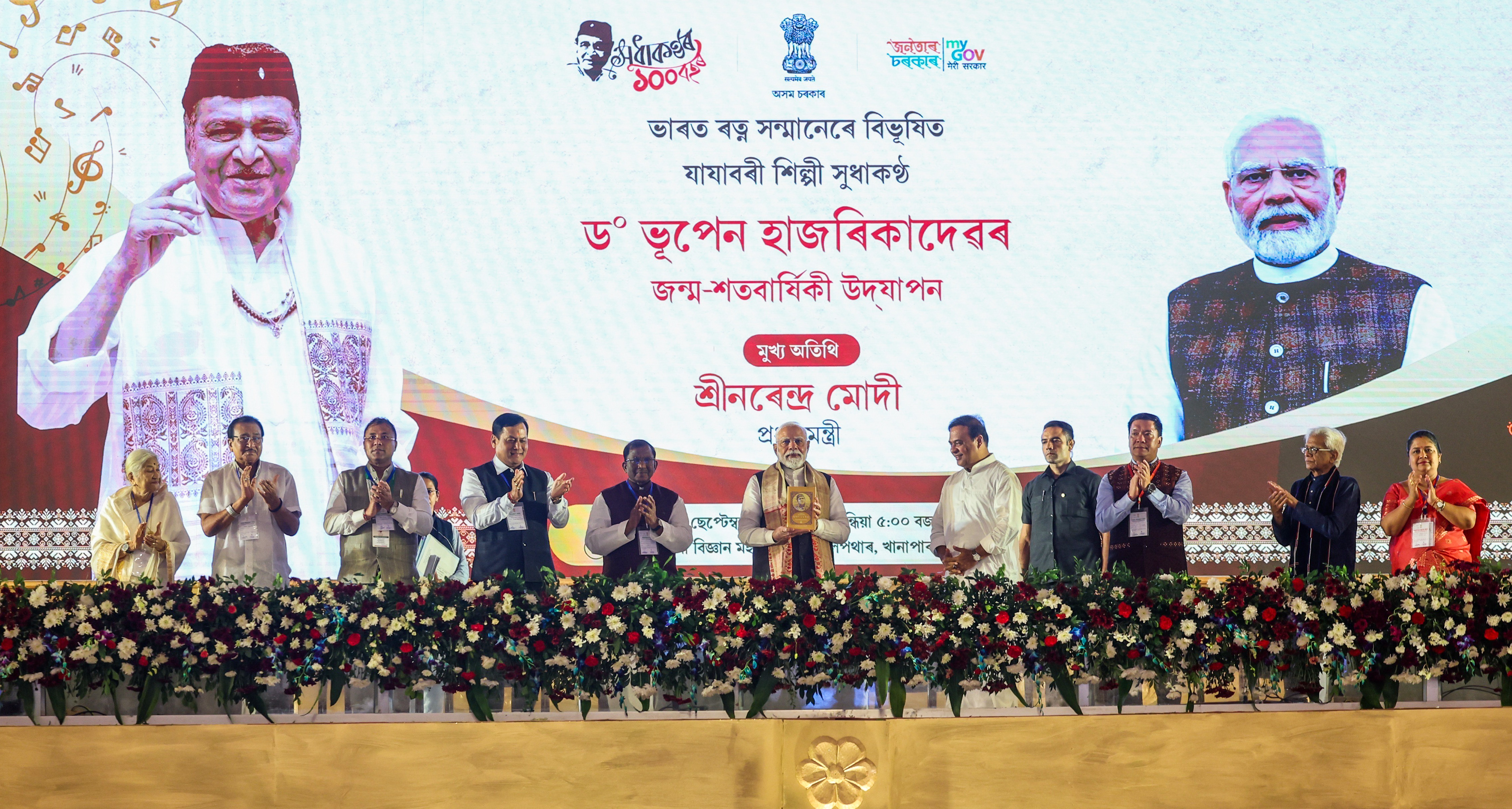
 Pallab Bhattacharyya
Pallab Bhattacharyya
The passing of Dr Bhupen Hazarika on November 5, 2011, marked the end of an era that defined the very soul of Assam. Revered as the Bard of Brahmaputra, Hazarika’s music carried the voice of a people through decades of political turmoil, hope, and renewal. He was not just a singer or composer but a chronicler of Assamese emotion.
Posthumously honoured with the Bharat Ratna in 2019, India’s highest civilian award, Hazarika’s creative genius had long transcended boundaries. Yet, beneath that brilliance lay a life fraught with hardship—ostracised at times for his ideological leanings, forced to resign from Gauhati University, and compelled to shift base to Kolkata and later Mumbai, seeking the artistic freedom that Assam denied him.
When he died, the grief was immense. Over half a million people thronged the streets of Guwahati, millions more watched from afar, and Assam wept as though it had lost its collective voice. His funeral was one of the largest public farewells India had witnessed, solemn and steeped in reverence.
Yet, fast forward to September 19, 2025, when Zubeen Garg—the singer, composer, actor, and icon of modern Assamese youth—died suddenly in Singapore at the age of 52, the reaction was something the state had never seen before.
Grief engulfed Assam like a storm that refused to pass. More than one and a half million mourners flooded Guwahati’s streets. Tributes poured in from every corner of the world—from Assamese communities in Dubai to artists in Karachi and London. Social media timelines became rivers of tears, and the mourning has continued, astonishingly, for weeks. The Limca Book of Records has already listed it as one of the largest public farewells in Asia.
Why did Zubeen’s death ignite such extraordinary emotion? And does this overwhelming grief suggest that Zubeen was somehow a greater artist than Bhupen Hazarika? To answer this, one must look not merely at music but at time itself—how generations change, how technology transforms mourning, and how Assamese identity evolves with each heartbeat of its people.
 Garima Saikia Garg at her husband Zubeen Garg's cremation
Garima Saikia Garg at her husband Zubeen Garg's cremation
Bhupen Hazarika belonged to a time when art was an institution—a medium of collective awakening. His music arose from the soil of the Brahmaputra, steeped in folk traditions, political consciousness, and moral philosophy. He was a builder of bridges—between the hills and the plains, between the Assamese and the Indian, between poetry and protest. His fame was hard-earned; his reach global, yet his public persona remained distant and dignified.
Zubeen Garg, on the other hand, had an instant connection with the public. The son of a modernised Assam, his debut album, Anamika, released in 1992, gave voice to a generation struggling between rebellion and belonging. He was not a detached icon—he was a companion. He talked to his fans on Instagram, helped them through crises, paid hospital bills for strangers, and lent his voice to causes from flood relief to environmental preservation.
His artistic world spanned over 38,000 songs in 40 languages, but what truly mattered was not the number, but the nearness—he was everyone’s “Zubeen Da.”
In Hazarika’s time, audiences revered artists; in Zubeen’s time, they befriended them. And that has made all the difference.
In 2011, the world was only beginning to understand social media; in 2025, it exists within it. Zubeen’s death unfolded in real time across billions of screens. Fans shared his last messages, replayed his final concert video, and created a virtual vigil that crossed borders. Mourning became participatory. Every Assamese home, every online community, became part of a vast, collective catharsis. The grief was amplified—not manufactured, but magnified—by a world where emotions are instantly shared and forever archived.
The difference, therefore, is not in how much people loved Bhupen Hazarika or Zubeen Garg, but in how that love could be expressed. One was mourned through silence and solemnity; the other, through the roaring chorus of millions of digital voices that refused to fade.

Prime Minister Narendra Modi and others at the commemoration of Bhupen Hazarika's 100 birth anniversary in Guwahati
To compare them is to misunderstand the nature of art itself. Hazarika was a cultural architect—he gave Assam its musical identity and carried it to the world. Zubeen was a cultural bridge—he made that identity flow freely through modern genres, bringing global music home to Assam without losing authenticity. If Hazarika taught Assamese people to dream of dignity, Zubeen taught them to live it out loud.
The mourning for Zubeen, therefore, is not proof of superiority—it is a mirror of the times. Hazarika belonged to a generation that revered restraint; Zubeen to one that celebrates emotional honesty. His sudden death, youthful vitality, and the immediacy of the online world turned mourning into a movement.
The aftermath of Zubeen’s passing holds deeper cultural lessons. It reveals the rise of cultural democracy, where love for an artist no longer needs institutional approval or state recognition. It flows freely from person to person. It highlights the growing demand for emotional authenticity in art. Audiences today want to know their heroes—not as distant figures on pedestals, but as fallible, relatable humans. It underscores the globalisation of Assamese identity—with the diaspora, digital media, and cross-border tributes turning local sorrow into global solidarity.
The future, then, will likely belong to artists who, like Zubeen, can balance artistry with humanity, excellence with empathy. They will not only sing; they will stand with people in their struggles, embodying the very spirit they celebrate.
The story of these two men—Bhupen Hazarika, the immortal voice, and Zubeen Garg, the living legend—reveals that greatness is measured by the meaning he leaves behind. One gave Assam its musical grammar; the other gave it rhythm for the heart. One built the bridge; the other walked across it hand in hand with his people. Assam’s mourning today is not just for a lost artist—it is for the end of an age of companionship.
ALSO READ: Aijaz Dhebar: Mayor, who transformed Raipur into India's 12th cleanest city
Yet, in that grief lies renewal. For as long as their songs are sung, the Brahmaputra will carry their voices across time. In the end, neither Bhupen Hazarika nor Zubeen Garg truly died. They changed the way Assam breathes. Their music remains—an eternal echo, binding generations, whispering through the winds of the Brahmaputra that true art, like love, is never lost. It only transforms.
